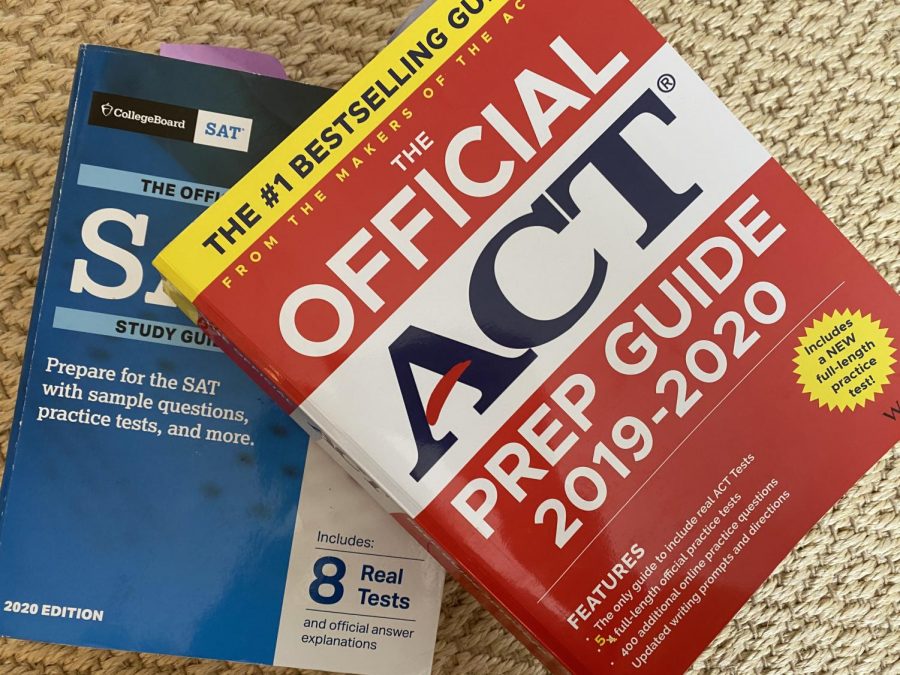The SAT vs. The ACT
Which test is right for you?
February 12, 2021
The SATs and ACTs are both major stress producers for high school juniors. Many people spend months preparing for this crucial test as they look toward attending college. So many questions surround these tests: How much studying is necessary? What is considered a good score? When should I take them? How many should I take? However, the preparation process also starts with an important question: Which test should I take?
An Overview:
The SAT contains a reading test, a writing and language test, a math test, and in previous years, an optional essay. The reading test is 65 minutes long and contains 52 questions. The writing and language test is 35 minutes long and has 44 questions. The math test is broken up into two sections, one with and one without a calculator. The non-calculator section is 25 minutes long and has 20 questions, and the calculator section is 55 minutes long and has 38 questions. Despite all of this information, things are always changing in the SAT and ACT world. On January 19, 2021, the College Board announced that the SAT “will drop the optional essay section,” according to The New York Times.
The ACT contains an English test, a math test, a reading test, a science test, and an optional essay. The English test has 75 questions and is 45 minutes long. The math test has 60 questions and is 60 minutes long. The reading test is 35 minutes long and has 40 questions. The science test has 40 questions and takes 35 minutes. And the optional essay is 40 minutes long with one prompt.
The main difference between the SAT and the ACT is the setup. According to Scituate High School Guidance Counselor Sharon Mohr, “The major difference is that the ACT has a science section that tests critical thinking.” Another difference is the number of questions and the length of the test: “The SAT is longer than the ACT. The ACT has 215 questions and allows 49 seconds for each, while the SAT has 154 questions and allows 1 minute and 10 seconds for each,” said Mohr.
Based on these differences, students can choose which test might be best for them. According to Tom Ventresca, the founder of Write Right Now, a teaching and tutoring program on the South Shore, “Students who require a little more time to process information fit better for the SAT. Those who excel at science and are faster readers perhaps fit the ACT better.” At Scituate High School, about 75% of students submit the SAT and 25% of students submit the ACT to colleges. 2020 SHS graduate Erin Logan, a current freshman attending the University of Connecticut in Storrs, commented, “I would recommend taking both tests at the start because you can compare them and find which one you like best.”
Preparing for these tests is the next challenge. Some of the main ways to study include using Khan Academy and the College Board resources, taking the PSAT, buying a practice book, and meeting with a tutor. Mohr advises students to “take as many practice tests as possible.”
According to Ventresca, it is also important to schedule your test well in advance so you can plan out your study time: “Select a test date that falls during a time in which the student is not too busy with extracurricular activities. Focused, disciplined practice for a couple of hours per week for about three months leading up to the first attempt at the test. Brush up all areas before a retake.”
Logan offered additional food for thought: “As much as the SAT and ACT are important for schools, they are definitely not the most important thing or the thing that will make or break your application. Don’t stress too much about these!”
Although the testing process can be time-consuming and mentally taxing, students must stay calm leading up to and on test day.
